![]()
![]()
![]()
Invited Short Talks
(Speakers listed below in name alphabet order)

Dharma Agrawal (ACM/IEEE/AAAS/WIF Fellow)
Ohio Board of Regents Distinguished Professor,
University of Cincinnati, USA
Title:
Continuous Health Condition Monitoring by 24x7 Sensing
and Transmission of Physiological data over 5-G Cellular Channels
Time: 16:00-16:30,
Tuesday, Feb. 17, 2015
Abstract:
We introduce a novel architecture tested exclusively for instantaneous sensing and 24x7 transmitting important physiological signals over cellular networks. Pulmonary Artery Pressure (PAP) and Electrocardiogram (ECG/EKG) are selected as two preliminary physiological signals for this exercise as these two can help diagnose Cardio-Vascular Diseases (CVDs), the major silent killer of modern days. We used Wireless Body Area Sensor Network to get the physiological data from a user's body and transmit them to the WBAN coordinator. The coordinator compresses the received data from the body sensors, modulates it using bi-phase modulation scheme and sends it to a GSM module for remote transmission over existing cellular network. The GSM module receives the data and sends it to a remotely located tiny server for subsequent demodulation and reconstruction of the original signals. We explain the details of different techniques used for data compression of this methodology and provide efficient transmission of data considering allowable range of perturbation in the information content in maintaining original characteristics. For the transmission of physiological data, we visualize to have a dedicated channel in upcoming fifth generation mobile technology, as more bandwidth for everybody is anticipated for services like data on demand, and would make 24x7 health-monitoring a reality in the near future. The novelty of our approach lies in the fact that it would enable online, round-the-clock health watch for the cellular system subscribers at very low power consumption by collaborating with the underlying sensor networks.
Biography:
Dharma P. Agrawal is the Ohio Board of Regents Distinguished Professor and the founding director for the Center for Distributed and Mobile Computing in the Department of Electrical Engineering and Computing Systems. He has been a faculty member at the ECE Dept., Carnegie Mellon University (on sabbatical leave), N.C. State University, Raleigh and the Wayne State University. His current research interests include applications of sensor networks in monitoring Parkinson’s disease patients and neurosis, applications of sensor networks in monitoring fitness of athletes’ personnel wellness, applications of sensor networks in monitoring firefighters physical condition in action, efficient secured communication in Sensor networks, secured group communication in Vehicular Networks, use of Femto cells in LTE technology and interference issues, heterogeneous wireless networks, and resource allocation and security in mesh networks for 4G technology. His recent contribution in the form of a co-authored introductory text book on Introduction toWireless and Mobile Computing has been widely accepted throughout the world and fourth edition is in press. The book has been has been reprinted both in China and India and translated in to Korean and Chinese languages. His co-authored book on Ad hoc and Sensor Networks, 2nd edition, has been published in spring of 2011. A co-edited book entitled, Encyclopedia on Ad Hoc and Ubiquitous Computing, has been published by the World Scientific and co-authored books entitled Wireless Sensor Networks: Deployment Alternatives and Analytical Modeling, andInnovative Approaches to Spectrum Selection, Sensing, On-Demand Medium Access in Heterogeneous Multihop Networks, and Sharing in Cognitive Radio Networks have being published by Lambert Academic. He is a founding Editorial Board Member, International Journal on Distributed Sensor Networks, International Journal of Ad Hoc and Ubiquitous Computing (IJAHUC),International Journal of Ad Hoc & Sensor Wireless Networks andthe Journal of Information Assurance and Security (JIAS). He has served as an editor of the IEEE Computer magazine, and the IEEE Transactions on Computers, the Journal of Parallel and Distributed Systems and the International Journal of High Speed Computing. He has been the Program Chair and General Chair for numerous international conferences and meetings. He has received numerous certificates from the IEEE Computer Society. He was awarded a Third Millennium Medal, by the IEEE for his outstanding contributions. He has delivered keynote speech at 34 different international conferences. He has published over 655 papers, given 52 different tutorials and extensive training courses in various conferences in USA, and numerous institutions in Taiwan, Korea, Jordan, UAE, Malaysia, and India in the areas of Ad hoc and Sensor Networks and Mesh Networks, including security issues. He has graduated 70 PhDs and 58 MS students. He has been named as an ISI Highly Cited Researcher, is a Fellow of the IEEE, the ACM, the AAAS and the World Innovation Foundation, and a recent recipient of 2008 IEEE CS Harry Goode Award. Recently, in June 2011, he was selected as the best Mentor for Doctoral Students at the University of Cincinnati. Recently, he has been inducted as a charter fellow of the National Academy of Inventers. He has also been elected a Fellow of the IACSIT (International Association of Computer Science and Information Technology), 2013.

Tracy Camp (ACM Fellow)
Professor, Colorado School of Mines, USA
Title:
Challenges in Developing Intelligent Geosystems (and the Pros/Cons of
Interdisciplinary Research) (PPT)
Time: 16:30-17:00,
Tuesday, Feb. 17, 2015
Abstract:
In this talk, the challenges of
developing intelligent wireless geosystems and the pros and cons of
interdisciplinary research are examined. First, the range of current
practices in wireless sensor network research projects is summarized by
analyzing recent contributions in the literature. Specifically, for each
wireless sensor network project, we compile details regarding the scope
(e.g., simulation, testbed, real deployment), the type of mote used
(e.g., TinyOS, Android, Arduino), and the type of sensors used (e.g.,
inertial, biological).
Next, reasons why Arduino based wireless devices are perhaps the future
of applied wireless sensor network research are discussed. Arduino-based
systems are inexpensive, easy to use, readily available, well
documented, 100% open-source (hardware and software), object oriented,
extendable (using the "shield" concept), and flexible (e.g., in terms of
radio choices). Lastly, the pros and cons of interdisciplinary research
are discussed; that is, we highlight the struggle between working on
difficult, relevant, inherently multi-disciplinary research problems
while maintaining scholarship in individual fields.
Biography:
Tracy Camp is a Professor of computer science at the Colorado School of Mines and an ACM Fellow. Dr. Camp her Ph.D. degree in Computer Science from The College of William and Mary in 1993. Her current research interests include (1) the credibility of ad hoc network simulation studies and (2) the deployment of wireless sensor networks in geosystems (e.g., monitoring earth dams and avalanche paths). Her articles have been cited over 8,000 times (per Google Scholar, as of May 2014). Dr. Camp has received over 20 grants from the National Science Foundation; in total, her projects have received over $20 million dollars in external funding. This funding has produced 12 software packages that have been requested from (and shared with) more than 3000 researchers in 86 countries (as of October 2012). Dr. Camp has previously served as the Treasurer of SIGMOBILE and on several editorial boards (e.g., IEEE Transactions on Mobile Computing) and technical programming committees (e.g., MobiCom, MobiHoc, and VANET). She is currently Co-Chair of the Computing Research Association’s Committee on the Status of Women in Computing Research (CRA-W), an organization that won the Presidential Award for Excellence in Science, Mathematics, and Engineering Mentoring in 2004. Dr. Camp shares her life with Max (born in 2000), Emma (born in 2003), her stay-at-home husband (Glen), and two cats (Sunny and Sparkle). The four humans are vegetarians who tremendously enjoy living in the foothills of the Rockies.
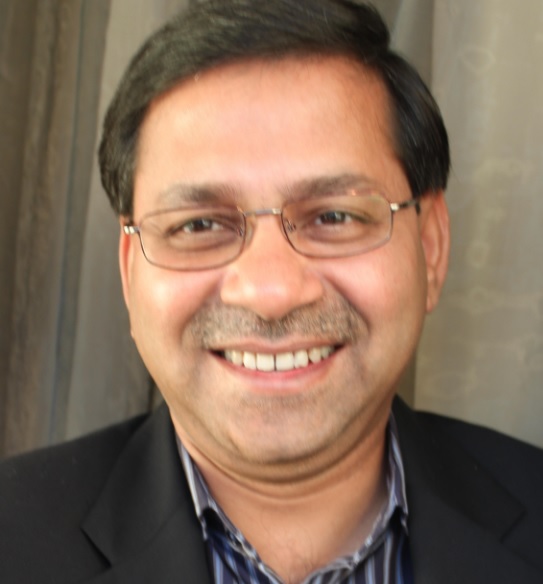
Sujit Dey (IEEE Fellow)
Professor, University of California, San Diego, USA
Title: A vision for
5G networks: Key application drivers, technology enablers, and research
directions
Time: 17:30-18:00,
Wednesday, Feb. 18, 2015
Abstract:
In this talk, we provide a vision for 5G wireless
networks driven by key multimedia and Internet of Things (IoT)
application trends and resulting challenges. To address the challenges
of latency, capacity, energy, and analytics scalability while ensuring
quality of experience, we envision a 5G approach consisting of key
technology enablers, including heterogeneous wireless accesses, spectrum
sharing, edge computing and storage, and dynamically reconfigurable base
stations. We show promising results using the proposed technology
enablers, and discuss new research directions towards our 5G vision.
Biography:
Sujit Dey is a Professor with the Department of Electrical and Computer Engineering, University of California, San Diego, where he heads the Mobile Systems Design Laboratory, which works on green computing and communications, mobile cloud computing architectures and algorithms, adaptive multimedia and networking techniques, and design of reliable embedded system-on-chips. He is the Director of the Center for Wireless Communications, and the Faculty Director of the von Liebig Entrepreneurism Center at UCSD. He is affiliated with the California Institute of Telecommunications and Information Technology (Calit2). He served as the Chief Scientist, Mobile Networks, at Allot Communications. Based on technologies he developed at UCSD, he founded Ortiva Wireless in 2004, where he served as its founding CEO and later as CTO and Chief Technologist till its acquisition by Allot Communications in 2012. Prior to Ortiva, he served as the Chair of the Advisory Board of Zyray Wireless till its acquisition by Broadcom in 2004. Prior to joining UCSD in 1997, he was a Senior Research Staff Member at the NEC C&C Research Laboratories in Princeton, NJ. He received his PhD. Degree in Computer Science from Duke University, Durham, NC in 1991. He has co-authored more than 200 technical publications, and a book on low-power design. He is the co-inventor of 17 U.S. and two international patents, resulting in multiple technology licensing and commercialization. Dr. Dey is a recipient of six IEEE/ACM Best Paper Awards, and has chaired multiple IEEE conferences and workshops.
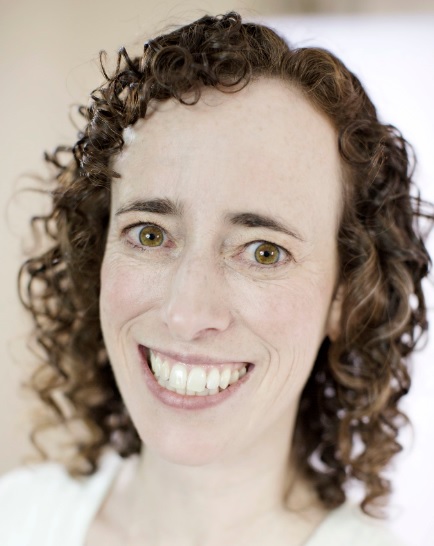
Michelle Effros (IEEE Fellow)
George van Osdol Professor, California Institute of Technology, USA
President, IEEE Information Theory Society
Title:
A Simple but
Powerful Tool for Understanding Large Networks
Time: 11:30-12:00,
Tuesday, Feb. 17, 2015
Abstract:
The theory underlying network communications includes many beautiful results describing network communication limits in example networks. While the literature employs a variety of common tools and ideas, to some extent, we build a new theory for each new type of network we tackle. This talk explores "reduction" as a very simple tool for studying the theory behind network communications. The tool is not new, but to date its use in communications has been limited. The talk focuses on the power of reduction to demonstrate new relationships between seemingly disparate problems and the potential of this approach for deriving new results to unify the field.
Biography:
Michelle Effros received the B.S. degree with distinction in 1989, the M.S. degree in 1990, and the Ph.D. degree in 1994, all in electrical engineering from Stanford University. She joined the faculty at the California Institute of Technology in 1994, where she is currently the George van Osdol Professor of Electrical Engineering. Her research interests include information theory, network coding, data compression, and communications. Prof. Effros received Stanford's Frederick Emmons Terman Engineering Scholastic Award in 1989, the Hughes Masters Full-Study Fellowship in 1989, the National Science Foundation Graduate Fellowship in 1990, the AT&T Ph.D. Scholarship in 1993, the NSF CAREER Award in 1995, the Charles Lee Powell Foundation Award in 1997, the Richard Feynman-Hughes Fellowship in 1997, and an Okawa Research Grant in 2000. She was cited by Technology Review as one of the world's top 100 young innovators in 2002. She and her co-authors received the Communications Society and Information Theory Society Joint Paper Award in 2009. She became a fellow of the IEEE in 2009. She is a member of Tau Beta Pi, Phi Beta Kappa, and Sigma Xi. She served as the Editor of the IEEE Information Theory Society Newsletter (1995-1998) as a Member of the Board of Governors of the IEEE Information Theory Society (1998-2003, 2008-present). She is the 2015 President of the Information Theory Society. She was a member of the NSF CISE Advisory Committee (2009-2012) and Committee of Visitors (2014). She served on the IEEE Signal Processing Society Image and Multi-Dimensional Signal Processing (IMDSP) Technical Committee from 2001 to 2007 and on ISAT from 2006 to 2009. She served as Associate Editor for the joint special issue on Networking and Information Theory in the IEEE Transactions on Information Theory and the IEEE/ACM Transactions on Networking and as Associate Editor for Source Coding for the IEEE Transactions on Information Theory from 2004 to 2007. She has served on numerous technical program committees and review boards, including serving as general co-chair for the 2009 Network Coding Workshop and technical program committee co-chair for the 2012 IEEE International Symposium on Information Theory.
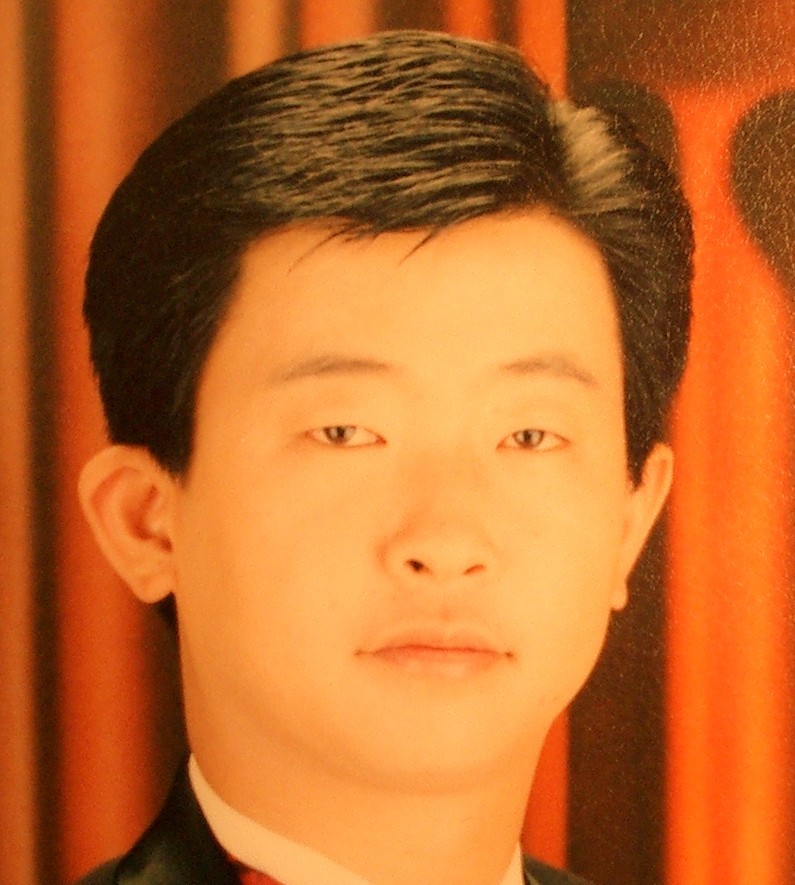
Zhu Han (IEEE Fellow)
Associate Professor,
University of Houston, USA
Title:
Multi-Block ADMM
for Big Data Optimization in Smart Grid (PPT)
Time: 11:00-11:30,
Tuesday, Feb. 17, 2015
Abstract:
With the era of ‘big data’ comes the need of parallel and distributed algorithms for the large-scale inference and optimization. Numerous problems in statistical and machine learning, compressed sensing, social network analysis, and computational biology formulate the optimization problems with millions or billions of variables. Since classical optimization algorithms are not designed to scale to problems of this size, novel optimization algorithms are emerging to deal with problems in the ‘big data’ setting.
In this talk, we review the parallel and distributed optimization algorithms based on alternating direction method of multipliers (ADMM) for solving ‘big data' optimization problem in smart grid communication networks. We first introduce the canonical formulation of the large-scale optimization problem. Next, we describe the general form of ADMM and then focus on several direct extensions and sophisticated modifications of ADMM from 2-block to N-block settings to deal with the optimization problem. The iterative schemes and convergence properties of each extension/modification are given, and the implementation on large-scale computing facilities is also illustrated. Finally, we numerate several applications in power system for distributed robust state estimation, network energy management and security constrained optimal power flow problem.
Biography:
Zhu Han (S’01–M’04-SM’09-F’14) received the B.S. degree in electronic engineering from Tsinghua University, in 1997, and the M.S. and Ph.D. degrees in electrical engineering from the University of Maryland, College Park, in 1999 and 2003, respectively.
From 2000 to 2002, he was an R&D Engineer of JDSU, Germantown, Maryland. From 2003 to 2006, he was a Research Associate at the University of Maryland. From 2006 to 2008, he was an assistant professor in Boise State University, Idaho. Currently, he is an Associate Professor in Electrical and Computer Engineering Department at the University of Houston, Texas. His research interests include wireless resource allocation and management, wireless communications and networking, game theory, wireless multimedia, security, and smart grid communication. Dr. Han is an Associate Editor of IEEE Transactions on Wireless Communications since 2010. Dr. Han is the winner of IEEE Fred W. Ellersick Prize 2011. Dr. Han is an NSF CAREER award recipient 2010.

Ahmed E. Kamal (IEEE Fellow)
Professor,
Iowa State University, USA
Title:
Sensing Strategies for Channel Discovery in Cognitive Radio Networks
Time: 10:00-10:30,
Thursday, Feb. 19, 2015
Abstract:
We consider spectrum sensing strategies used to discover available spectrum in Cognitive Radio Networks (CRNs), using both non-cooperative sensing and cooperative sensing approaches. After introducing the background to sensing techniques, this position paper focuses on strategies and algorithms for conducting sensing such that the sensing time and energy are minimized, and the likelihood of finding available spectrum is maximized. The paper mainly focuses on two approaches. The first is the ordering of channels to be sensed, and the second is cooperative spectrum sensing. After discussing the available strategies under each of these two approaches, we introduce our own proposed approaches. We first introduce a method for sorting the channels to be sensed in order to optimize the sensing time, while satisfying PUs' protection and false alarm constraints. Then, we introduce a framework for cooperative sensing of multiple PUs' channels by a group of SUs. The framework includes strategies for assigning different SUs to sense different PUs' channels, selection of the fusion center for each of the SUs clusters, and routing sensing data within the cluster from the SUs to the fusion center. We show how this framework is capable of optimizing different objective functions. Several open problems and future research directions are also introduced.
Biography:
Ahmed E. Kamal is a Professor of Electrical and Computer Engineering at Iowa State University in the USA. He received a B.Sc. (distinction with honors) and an M.Sc. both from Cairo University, Egypt, and an M.A.Sc. and a Ph.D. both from the University of Toronto, Canada, all in Electrical Engineering . He is Fellow of the IEEE and a senior member of the Association of Computing Machinery. He is also an IEEE Communications Society Distinguished Lecturer for 2013 and 2014.
Kamal's research interests include cognitive radio networks, optical networks, wireless sensor networks, and performance evaluation. He received the 1993 IEE Hartree Premium for papers published in Computers and Control in IEE Proceedings, and the best paper award of the IEEE Globecom 2008 Symposium on Ad Hoc and Sensors Networks Symposium.Kamal was the chair or co-chair of the Technical Program Committees of a number of IEEE sponsored conferences including the Optical Networks and Systems Symposia of the IEEE Globecom 2007, and the IEEE Globecom 2010, and is the co-chair of the IEEE Globecom Cognitive Radio and Networks Symposium in 2012. He is also the lead chair of the IEEE Globecom Cognitive Radio and Networks Symposium in 2014. He is on the editorial boards of the IEEE Communications Surveys and Tutorials, the Computer Networks journal, and the Optical Switching and Networking journal.

B.V.K. Vijaya Kumar (IEEE/SPIE/OSA/IAPR Fellow)
U.A. and Helen Whitaker Professor and Associate Dean,
Carnegie Mellon University, USA
Title:
Coding for Handling Intercell Interference in Flash Memory
Time:
10:30-11:00, Tuesday, Feb. 17, 2015
Abstract:
An important consequence of the aggressive scaling down of the flash memories (leading to increased storage density) is the increased intercell interference (ICI) between neighboring flash memory cells. We discuss the use of various coding schemes to mitigate the effects of ICI. In particular, coding schemes that use the side information will be emphasized.
Biography:
B.V.K. Vijaya Kumar is the U.A. and Helen Whitaker Professor of Electrical and Computer Engineering and the Associate Dean for Graduate and Faculty Affairs for the College of Engineering at Carnegie Mellon University, Pittsburgh. Professor Kumar's research interests include Computer Vision and Pattern Recognition Algorithms and Applications and Coding and Signal Processing for Data Storage Systems. His publications include the book entitled Correlation Pattern Recognition, twenty book chapters, 380 conference papers and 180 journal papers. He is also a co-inventor of 10 patents. Professor Kumar is a Fellow of IEEE, a Fellow of SPIE, a Fellow of OSA and a Fellow of the International Association of Pattern Recognition (IAPR).
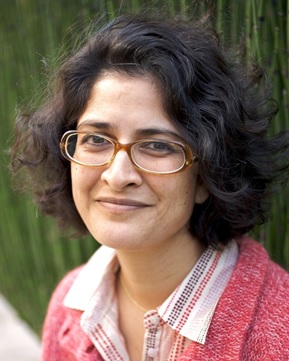
Urbashi Mitra (IEEE Fellow, IEEE Distinguished Lecturer)
Professor,
University of Southern California, USA
Title:
Queueing Theory as a Modeling Tool for Bacterial
Interaction: Implications for Microbial Fuel Cells
Time: 14:00-14:30,
Thursday, Feb. 19, 2015
Abstract:
Microbial communities play a significant role in bioremediation, plant growth promotion, human and animal digestion, drive elemental cycles, the carbon-cycle and cleaning water. They are also posed to be the engines of renewable energy via microbial fuel cells which can reverse the process of electrosynthesis. While the diffusion of chemical signals in the surrounding medium of biological systems has been heavily studied; the electron transfer mechanism occurring in living cells and its role in cell-to-cell interaction is less understood. Recent experimental observations open up new frontiers in the design of electron-based communication and energy networks in microbial communities, which may coexist with the more well known interaction strategies based on molecular diffusion. In this position paper, we propose a series of modeling strategies, informed by experiment, to describe the large-scale interaction of bacterial communities. We describe a new queueing theoretic model for the internal workings of a bacterium as well as methods based on statistical physics to scale up the queuing models. We observe that computational models enable the changing of electro-chemical parameters and predict performance of complex biofilms employing a few hours of computer run-time, in contrast to real biological experiments which are far more costly and time intensive. Our goal is to couple modeling with experiment to optimize the design of microbial fuel cells.
Biography:
Urbashi Mitra [F'07] received the B.S. and the M.S. degrees from the University of California at Berkeley and her Ph.D. from Princeton University. After a six year stint at the Ohio State University, she joined the Department of Electrical Engineering at the University of Southern California, Los Angeles, where she is currently a Professor. She is a member of the IEEE Information Theory Society's Board of Governors (2002-2007, 2012-2014) and the IEEE Signal Processing Society’s Technical Committee on Signal Processing for Communications and Networks (2012-2014). She is the recipient of: 2012 Globecom Signal Processing for Communications Symposium Best Paper Award, 2012 NAE Lillian Gilbreth Lectureship, USC Center for Excellence in Research Fellowship (2010-2013), the 2009 DCOSS Applications & Systems Best Paper Award, IEEE Fellow (2007), Texas Instruments Visiting Professor (Fall 2002, Rice University), 2001 Okawa Foundation Award, 2000 OSU College of Engineering Lumley Award for Research, 1997 OSU College of Engineering MacQuigg Award for Teaching, and a 1996 National Science Foundation (NSF) CAREER Award. Dr. Mitra has been/is an Associate Editor for the following IEEE publications: Transactions on Signal Processing (2012--), Transactions on Information Theory (2007-2011), Journal of Oceanic Engineering (2006-2011), and Transactions on Communications (1996-2001). Dr. Mitra has held visiting appointments at: the Delft University of Technology, Stanford University, Rice University, and the Eurecom Institute. She served as co-Director of the Communication Sciences Institute at the University of Southern California from 2004-2007. Her research interests are in: wireless communications, communication and sensor networks, detection and estimation and the interface of communication, sensing and control.
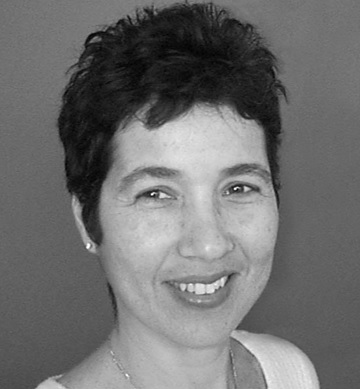
Katia Obraczka (IEEE Fellow)
Professor, University of
California, Santa Cruz, USA
Title:
Towards the Internets of the Future
Time: 10:00-10:30,
Tuesday, Feb. 17, 2015
Abstract:
In this talk we review some of the research conducted at the UC Santa Cruz Internetworking Research Group, or i-NRG, which is inspired by the challenges posed by future internets. Some of the projects highlighted here include efficient data delivery over hybrid internets consisting of infrastructure-based as well as infrastructure-less networks, user mobility characterization and modeling in wireless networks, efficient medium access, congestion control in Disruption-Tolerant Networking (DTN), sensor network deployment and management, and extending software-defined networking to operate in hybrid, administratively decentralized internets.
Biography:
Katia Obraczka is Professor of Computer Engineering at UC Santa Cruz. Before joining UCSC, she was a research scientist at USC's Information Sciences Institute (ISI) and had a joint appointment at USC's Computer Science Department.
Prof. Obraczka's research interests span the areas of computer networks, distributed systems, and Internet information systems. Her lab, the Internetwork Research Group (i-NRG) at UCSC, conducts research on designing and developing protocol architectures motivated by the internets of the future. She has been a PI and a co-PI in a number of projects sponsored by government agencies (e.g., NSF, DARPA, NASA, ARO, DoE, AFOSR) as well as industry (e.g., Cisco, Google, Nokia). She is a Fellow of the IEEE.
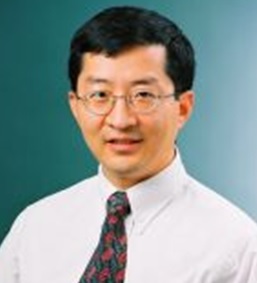
Chunming Qiao (IEEE Fellow)
Professor, SUNY
Buffalo, USA
Title:
ACE: Availability Changes Everything in Cloud Services (PPT)
Time: 17:00-17:30, Tuesday, Feb. 17, 2015
Abstract:
Cloud services may be disrupted by various failures
ranging from very frequent small scale failures (such as a few isolated
individual server/switch failures) to less frequent, yet non-negligible,
large-scale failures (such as rack or cluster failures). With our
growing dependence on cloud services for both commercial and personal
use, their reliability and availability have become increasingly
critical. Despite existing (mostly ad hoc) approaches to improving the
cloud service reliability and availability, a recent report found that
on average, a service outage lasts about 134 minutes, and these service
outages cost about $426 billion of loss worldwide annually. In addition,
existing SLAs are often loosely defined, and lack of
reliability/availability guarantees has been cited as the top concern
over cloud services among IT professionals in a 2012 global survey. In
this talk, I will discuss both the challenges and opportunities related
to service availability prediction, resource provisioning, and SLA
contract design from the perspective of cloud service providers, and
present our work on cost-effective solutions to problems ranging from
creating survivable virtual infrastructures in a distributed
multi-datacenter environment, to availability-aware VM
placement/allocation.
Biography:
Chunming Qiao directs the Lab for Advanced Network Design,
Analysis, and Research (LANDER) at SUNY Buffalo with current foci on cyber
transportation systems, cloud computing, and smartphone systems.
He has published extensively with an h-index of about 60 (according to
Google Scholar), and is among the Top 100 Authors in Computer Science,
Networks and Communications according to Microsoft Academic Ranking. Two of
his papers have received best paper award from IEEE and Joint ACM/IEEE
venues. He also has 7 US patents and served as a consultant for several IT
and Telecommunications companies since 2000. His research has been featured
in BusinessWeek, Wireless Europe, CBC and NewScientists. He has given more
than a dozen of keynotes, and numerous invited talks, chaired and co-chaired
a dozen of international conferences and workshops, and served on the
editorial board of several journals include IEEE Transactions on Networks,
and Transactions on TPD.. His research has been funded by a dozen major IT
and telecommunications companies including Cisco and Google, and about a
dozen NSF grants. He has received several wards from SUNY including the
recent SUNY Chancellor’s Award for Excellence in Scholarship and Creative
Activities; He was elected to IEEE Fellow for his contributions to optical
and wireless network architectures and protocols.

George Rouskas (IEEE Fellow, IEEE Distinguished Lecturer)
Professor and the Director of Graduate Programs, North
Carolina State University, USA
Title:
Spectrum
Assignment in Rings with Shortest-Path Routing: Complexity and
Approximation Algorithms (PPT)
Time: 11:00-11:30, Thursday, Feb. 19, 2015
Abstract:
We study the spectrum assignment (SA) problem in ring networks with shortest path (or, more generally, fixed) routing. With fixed routing, each traffic demand follows a predetermined path to its destination. In earlier work, we have shown that the SA problem can be viewed as a multiprocessor problem. Based on this insight, we prove that, under the shortest path assumption, the SA problem can be solved in polynomial time in small rings, and we develop constant-ratio approximation algorithms for large rings. For rings of size up to 16 nodes (the maximum size of a SONET/SDH ring), the approximation ratios of our algorithms are strictly smaller than the best known ratio to date.
Biography:
George N. Rouskas is a Professor and the Director of Graduate Programs in the Department of Computer Science at North Carolina State University. He received the Diploma in Computer Engineering from the National Technical University of Athens (NTUA), Athens, Greece, and the M.S. and Ph.D. degrees in Computer Science from the College of Computing, Georgia Institute of Technology, Atlanta GA. His research interests include network architectures and protocols, optical networks, network design and optimization, and performance evaluation.
He is co-editor of the book ‘‘Next-Generation Internet Architectures and Protocols’’ (Cambridge University Press, 2011), author of the book ‘‘Internet Tiered Services’’ (Springer, 2009), and co-editor of the book ‘‘Traffic Grooming for Optical Networks’’ (Springer, 2008). He is founding co-editor-in-chief of the Optical Switching and Networking Journal and he has served on the editorial boards of the IEEE/ACM Transactions on Networking, IEEE/OSA Journal of Optical Networking, Computer
Networks, and Optical Networks. He is the General Chair for IEEE ICNP 2014, and he has served as TPC or general chair for several conferences, including ICCCN 2013, ICCCN 2011, the IEEE GLOBECOM 2010 ONS Symposium, BROADNETS 2007, IEEE LANMAN 2004 and 2005, and IFIP NETWORKING 2004.
He is the recipient of a 1997 NSF CAREER Award, the 2004 ALCOA Foundation Engineering Research Achievement Award, and the 2003 NCSU Alumni Outstanding Research Award, and he was inducted in the NCSU Academy of OutstandingTeachers in 2004. He serves as the Vice Chair of the IEEE Optical Networking Technical Committee (ONTC) in 2014–2015, and he served as a Distinguished Lecturer for the IEEE Communications Society in 2010–2011.
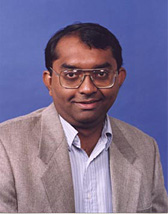
Sumit Roy (IEEE Fellow)
Professor, University of Washington, USA
Title:
White Space
Networking
Time: 10:30-11:00, Thursday, Feb. 19, 2015
Abstract:
The evolution of cognitive (secondary) networks to enable more efficient spectrum usage will rely on fast and accurate spectrum sensing/mapping, supported by a suitable architecture for data integration and model building. In the first part of the talk, fundamental aspects of the wide-area RF mapping problem as a grand challenge will be highlighted; and some recent work at UW that underpin sub-system level trade-offs (between scan latency and channel status estimation accuracy) for channel sensing described. Next, the role of centralized databases in RF map creation for enabling primary-to-secondary and secondary-to-secondary coexistence is explored and a hybrid architecture proposed – that involves both distributed (crowd-sourced) sensing as well as it's integration (at suitable points of aggregation) into existing databases. Finally, some ongoing work regarding a fundamental question: how much white space capacity is there – will be described.
Biography:
Sumit Roy received the B. Tech. degree from the Indian Institute of Technology (Kanpur) in 1983, and the M. S. and Ph. D. degrees from the University of California (Santa Barbara), all in Electrical Engineering in 1985 and 1988 respectively, as well as an M. A. in Statistics and Applied Probability in 1988. His previous academic appointments were at the Moore School of Electrical Engineering, University of Pennsylvania, and at the University of Texas, San Antonio. He has been at UW since 1998, where he is presently Professor of Electrical Engineering. His research interests include analysis/design of wide range of next generation wireless communication systems/networks, inclusive of PAN/LAN/MAN, sensor, vehicular and RFID networks. He has served as Associate Editor for IEEE Transactions on Communications and Wireless Communications, undertaken lead roles in conference organization (Vice TPC Chair for WCNC2005) and was selected Fellow, IEEE for his contributions to cross-layer design of wireless networks and emerging wireless standards.

Izhak Rubin (IEEE Life Fellow)
Distinguished Professor, UCLA, USA
Title:
Adaptive Multicast Streaming over Cellular Wireless Networks
Time: 15:00-15:30, Thursday, Feb. 19, 2015
Abstract:
We present and evaluate combined networking and compression mechanisms for adaptive video streaming over cellular wireless networks. Multi layer video compression coding methods, such as SVC techniques, are used so that different groups of mobiles are provided video streams at different quality-of-experience (QoE) levels. The system service manager specifies the corresponding targeted coverage levels per each video quality level.
The multicasting service targets mobiles that reside over a specified area of operation, which is covered by a dense network of small cells. Several scheduling schemes are studied in controlling the temporal, spectral and spatial segments allocated for use by base station nodes in executing their downlink multicast transmissions. Fractional frequency reuse scheduling approaches are also evaluated.
The system is configured to maximize a utility metric that accounts for the number of streams that can be multicasted over the area as well as for satisfying spatial video quality distribution objectives. Proxy servers and resource allocation managers adjust accordingly the operation of the involved video compression and communications networking processes.
Biography:
Izhak Rubin received the B.Sc. and M.Sc. from the Technion - Israel Institute of Technology, Haifa, Israel, in 1964 and 1968, respectively, and the Ph.D. degree from Princeton University, Princeton, NJ, in 1970, all in Electrical Engineering. Since 1970, he has been on the faculty of the UCLA School of Engineering and Applied Science where he is currently a Distinguished Professor in the Electrical Engineering Department.
Dr. Rubin has had extensive research and industrial experience in the design and analysis of commercial and military computer communications and telecommunications systems and networks. Design and analysis projects include network systems employed by the FAA for air traffic control, terrestrial and satellite based mobile wireless networks, high speed multimedia telecommunications networks, advanced cellular cross-layer operations, mobile backbone ad hoc wireless networks and such UAV aided networks, highway vehicular communications networks, mechanisms to assure network resiliency and automatic failover operations. At UCLA, he is leading a research group in the areas of telecommunications and computer communications networks. He serves as co-director of the UCLA Public Safety Network Systems Laboratory.
During 1979-1980, he served as Acting Chief Scientist of the Xerox Telecommunications Network. He served as co-chairman of the 1981 IEEE International Symposium on Information Theory; as program chairman of the 1984 NSF-UCLA workshop on Personal Communications; as program chairman for the 1987 IEEE INFOCOM conference; and as program co-chair of the IEEE 1993 workshop on Local and Metropolitan Area networks, as program co-chair of the 2002 UCLA/ONR Symposium on Autonomous Intelligent Networked Systems (AINS). He has served as an editor of the IEEE Transactions on Communications, Wireless Networks journal, Optical Networks magazine, IEEE JSAC issue on MAC techniques, Photonic Networks Communications journal, and has contributed to texts and encyclopedia on telecommunications systems and networks. Dr. Rubin is a Life Fellow of IEEE.
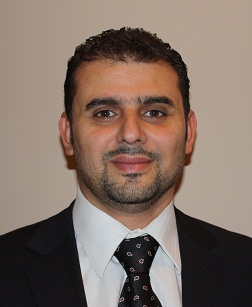
Abdulmotaleb El Saddik (IEEE/CAE/EIC Fellow, IEEE Distinguished Lecturer)
Distinguished University Professor and University
Research Chair, University of Ottawa, Canada
Title:
The Affect-Aware City
Time: 16:30-17:00, Wednesday, Feb. 18, 2015
Abstract:
The goal of smart cities can be summarized as optimizing the city's services (transportation, utilities, safety and many others) in order to improve the quality of life of its residents. A means to this goal is the heavy use of information and communications technology to give the city awareness of the real world and enable intelligent decision making. At the same time, the field of Affective Computing aims to give machines the ability to interpret and utilize human emotions. It is argued that emotions are an inseparable aspect of human intelligence. We thus propose our vision of the affect-aware city. By being capable of understanding the affective states of its citizens, the city's decision making processes can be brought in line with what truly matters to the people. We give an overview of the relevant affective states. We show how they can be detected individually and then aggregated into a global model of affect. The paper concludes with some inspiring applications that are possible in an affective city.
Biography:
Abdulmotaleb El Saddik, is Distinguished University Professor and University Research Chair in the School of Electrical Engineering and Computer Science at the University of Ottawa. He is the director of the Multimedia Communications Research Laboratory (MCRLab). He is Associate Editor and Guest Editor of several ACM/IEEE Transactions and Journals. Dr. El Saddik has been the General Chair and/or Technical Program Chair of more than 40 international conferences symposia and workshops He has authored and co-authored three books and more than 400 publications and has supervised more than 100 researchers.
Prof. El Saddik is a Fellow of the IEEE (2009), for his contributions to interactive haptic audio visual systems. He was also elected Fellow of the Canadian Academy of Engineering (2010) and Fellow of the Engineering Institute of Canada (2010). He is the first Canadian in Computer Science & Engineering to receive the very prestigious Friedrich Wilhelm Bessel Award from the German Humboldt Foundation in 2007. He is the recipient of the Ontario Premier's Research Excellence Award (PREA), in 2004 and the National Capital Institute of Telecommunications (NCIT) New Professorship Incentive Award (2004). In 2008 he was appointed an IEEE Distinguished Lecturer, he also received the Professional of the Year Award, from the Canadian Lebanese Chamber of Commerce and Industry for Achievement in the Development of Canada. He has also received five Outstanding/Best Paper Awards. Most recently Dr. El Saddik has been the recipient of the 2010 Association of Computing Machinery (ACM) Distinguished Scientist Award, the 2011 Cátedra de Excelencia from Universidad Carlos III de Madrid, Spain and the 2010 IEEE Instrumentation and Measurement Society Technical Award, which is the highest award of IEEE Instrumentation and Measurement society, for his outstanding contributions to multimedia computing. He received the Faculty of Engineering’s George S. Glinski Award for Excellence in Research for 2012. He also received the 2012 IEEE Ottawa Educator Award and the 2013 IEEE Canada Achievement Award: C.C. Gotlieb (Computer) Medal for important contributions to the field of computer engineering and science.
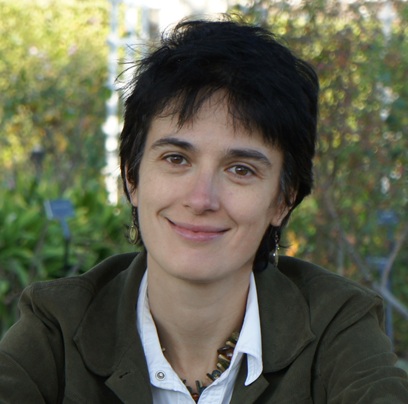
Mihaela van der Schaar (IEEE Fellow, IEEE Distinguished Lecturer)
Chancellor's Professor, University of California, Los
Angeles, USA
Title:
The Future of Network Science: Guiding the Formation of Networks (PPT)
Time: 14:30-15:00, Thursday, Feb. 19, 2015
Abstract:
The state-of-the-art work in network
science has focused on networks that have already formed. The
state-of-the-art in microeconomics studies the formation of networks but
makes heroic assumptions (e.g., homogeneous agents/entities, complete
information). Neither network science nor microeconomics takes into
account that agents have incomplete information about each other and
about the environment, that information about each other and about the
environment must be learned, and that self-interested strategic behavior
and learning interact. Hence, neither network science nor microeconomics
informs us about the formation process of real networks and the
consequences of this process.
Our research provides a methodology to study the formation of real
networks, taking into account that agents differ from each other and
begin with incomplete information, and must learn over time which
connections/link to form and which to break, which to strengthen and
which to let wither. Using this methodology we show, among many other
things, that the information to which agents have access and the speed
at which they learn and act can have tremendous impact on the dynamics
of network formation and for individual and social welfare. Importantly,
we show how to design mechanisms which can guide the formation of
networks to achieve desirable properties such as high social welfare and
resiliency to threats.
Biography:
Mihaela van der Schaar is
Chancellor's Professor of Electrical Engineering at University of
California, Los Angeles. Her research interests include engineering
economics and game theory, strategic design, expert and social networks,
online reputation and social media, dynamic multi-user networks and system
designs, wireless networks, online learning, real-time stream mining,
meta-learning and multimedia networking and systems.
She is an IEEE Fellow, a Distinguished Lecturer of the Communications
Society for 2011-2012, the Editor in Chief of IEEE Transactions on
Multimedia and a member of the Editorial Board of the IEEE Journal on
Selected Topics in Signal Processing. She received an NSF CAREER Award
(2004), the Best Paper Award from IEEE Transactions on Circuits and Systems
for Video Technology (2005), the Okawa Foundation Award (2006), the IBM
Faculty Award (2005, 2007, 2008), the Most Cited Paper Award from EURASIP:
Image Communications Journal (2006), the Gamenets Conference Best Paper
Award (2011) and the 2011 IEEE Circuits and Systems Society Darlington Award
Best Paper Award. She received three ISO awards for her contributions to the
MPEG video compression and streaming international standardization
activities, and holds 33 granted US patents. She is also the founding
director of the UCLA Center for Engineering Economics, Learning, and
Networks.
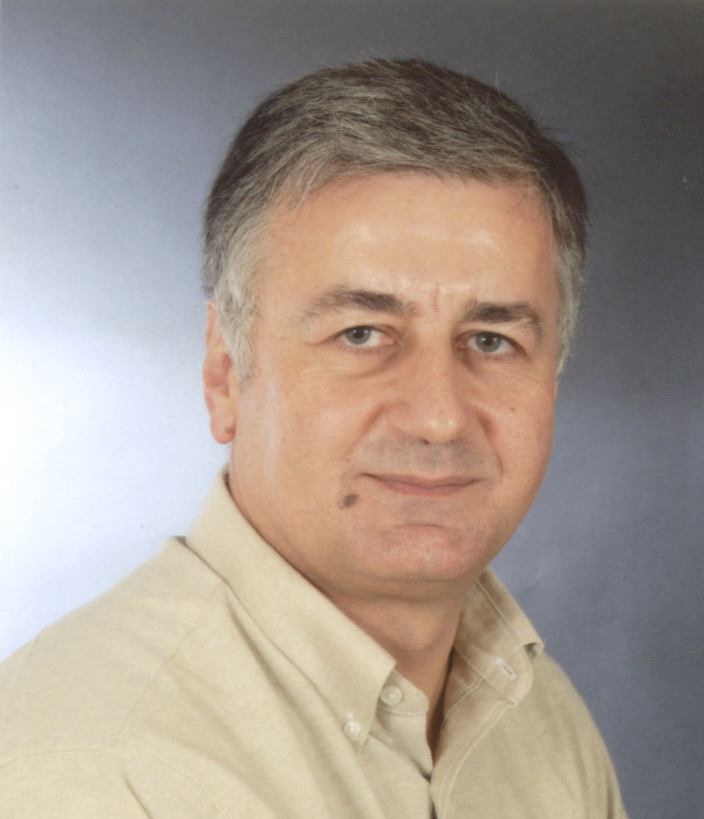
Ioannis Stavrakakis (IEEE Fellow)
Professor and Department Chair, University of Athens, Greece
Title:
Managing Competition for Resources in Human-centric Networked
Environments
Time: 17:30-18:00, Tuesday, Feb. 17, 2015
Abstract:
Advances in Information and Communication Technologies (ICT) have enabled the generation and dissemination of vast amounts of information that enhance awareness about the environment and its (limited) resources. When shared, this information can enrich people’s awareness about and foster more efficient management of a broad range of resources, related to ICT, urban space, transportation networks or natural goods. While awareness can bring benefits, it may also bring severe drawbacks. As awareness synchronizes the perception of different users about the state of their environment (such as the state of some resource of limited capacity), it also “synchronizes” behaviors and decisions, intensifying competition phenomena in distributed and uncoordinated environments and inducing potentially severe congestion penalties. As a result, the users become competition-aware and should decide whether to compete or not to compete for some limited resource, factoring in the risk of paying an excess cost in case of a failure in finding the limited resource available.
In this talk we discuss how competition shapes decision making in a collective awareness environment under different assumptions on the decision makers’ rationality. A first step to understanding the aforementioned uncoordinated resource selection problem is to consider strategic and rational users fed with precise information on the available resources and number of competitors. This case provides certain benchmarks and “reference” understanding, against which other more realistic or human-centric approaches can be compared. The latter are also discussed in this talk and include cases under the broad umbrella of “bounded rationality”, where information is incomplete or the decision-makers have computational, cognitive or other limitations or biases (human-centric constraints), resorting to (fast and frugal) heuristics on decision-making. Besides exploring the existence and efficiency of equilibria, it is important to understand the efficiencies or deficiencies of human-centric decision-making, as well as assess the cost of the lack of coordination in accessing distributed resources (price of anarchy) and identify directions to reduce it.
Biography:
Prof. Ioannis Stavrakakis (IEEE Fellow, Dept Chair) (http://cgi.di.uoa.gr/~istavrak/), is Professor in the Dept of Informatics and Telecommunications of the National and Kapodistrian University of Athens. He received his Diploma in Electrical Engineering from the Aristotelian University of Thessaloniki and his PhD in the same field from University of Virginia, USA. He served as Assistant Professor in CSEE, University of Vermont (USA), 1988-1994; Associate Professor of Electrical and Computer Engineering, in Northeastern University, Boston (USA), 1994-1999; Associate Professor of Informatics and Telecommunications, in the National and Kapodistrian University of Athens (Greece), 1999-2002; and as Professor since 2002. Teaching and research interests are focused on resource allocation protocols and stochastic traffic management and congestion control for communication networks (peer-to-peer, mobile, ad hoc, autonomic, delay tolerant, social and future Internet), with recent emphasis on human driven decision-making in distributed competitive environments and information-centric networking. His research has been published in over 220 scientific journals and conference proceedings and was funded by USA-NSF, DARPA, GTE, BBN and Motorola (USA) as well as Greek and European Union (IST, FET, FIRE) funding agencies. He has served repeatedly in NSF and EU-IST research proposal review panels and involved in the TPC and organization of numerous conferences sponsored by IEEE, ACM, ITC and IFIP societies. He has served as chairman of IFIP WG6.3 and elected officer for IEEE Technical Committee on Computer Communications (TCCC). He has been in the editorial board of Computer Communications, IEEE/ACM transactions on Networking, ACM/Springer Wireless Networks and Computer Networks journals. He has served as head of the Communications and Signal Processing Division, Director of Graduate Studies and Dept Chair.
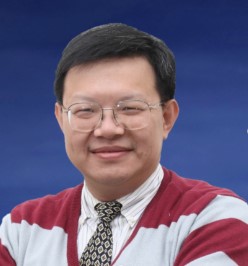
Li-Chun Wang (IEEE Fellow)
Chairman of EE Department,
National Chiao Tung University, Taiwan
Title:
Signal and Information Processing in Mobile Cloud Computing: Trends and
Challenges
Time: 16:00-16:30, Wednesday, Feb. 18, 2015
Abstract:
Mobile devices become popular with the help of hardware improvements and new functions supported by many sensors. In this paper, we propose a mobile and multi-sensing fusion platform to integrate the unstructured streaming sensing data collecting as well as processing technology and build a QoS performance model to estimate the computing resource of the platform. We also show three mobile and multi-sensing fusion applications as the example on the platform. Besides, we discuss the trend and challenge of the mobile and multi-sensing fusion technology. This paper points out the trend and challenge of signal and information processing in mobile cloud computing in detail.
Biography:
Li-Chun
Wang (M’96 – SM’06 – F’11) received the B.S. degree from National Chiao Tung
University, Taiwan, R. O. C. in 1986, the M.S. degree from National Taiwan
University in 1988, and the Ms. Sci. and Ph. D. degrees from the Georgia
Institute of Technology , Atlanta, in 1995, and 1996, respectively, all in
electrical engineering.
From 1990 to 1992, he was with the Telecommunications Laboratories of the
Ministry of Transportations and Communications in Taiwan (currently the Telecom
Labs of Chunghwa Telecom Co.). In 1995, he was affiliated with Bell Northern
Research of Northern Telecom, Inc., Richardson, TX. From 1996 to 2000, he was
with AT&T Laboratories, where he was a Senior Technical Staff Member in the
Wireless Communications Research Department. In August 2000, he joined National
Chiao Tung University in Taiwan, and is currently the Chairman of the Department
of Electrical Engineering of NCTU since Aug. 2012. His current research
interests are in the areas of radio resource management and cross- layer
optimization techniques for wireless systems, heterogeneous wireless network
design, and cloud computing for mobile applications.
He was elected to the IEEE Fellow grade in 2011 for his contributions in
cellular architectures and radio resource management in wireless net- works. Dr.
Wang was a co-recipient (with Gordon L. St ¨uber and Chin-Tau Lea) of the 1997
IEEE Jack Neubauer Best Paper Award for his paper “Architecture Design,Frequency
Planning, and Performance Analysis for a Microcell/Macrocell Overlaying System,”
IEEE Transactions on Vehicular Technology, vol. 46, no. 4, pp. 836-848, 1997. He
has published over 180 journal and international conference papers. He served as
an Associate Editor for the IEEE Trans. on Wireless Communications from 2001 to
2005, the Guest Editor of Special Issue on “Mobile Computing and Networking” for
IEEE Journal on Selected Areas in Communications in 2005 and on ”Radio Resource
Management and Protocol Engineering in Future IEEE Broadband Networks” for IEEE
Wireless Communications Magazine in 2006. He is holding nine US patents.
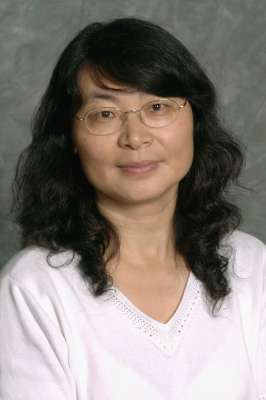
Yuanyuan Yang (IEEE Fellow)
Professor, Stony Brook University, USA
Title:
Power Sensor Networks by Wireless Energy - Current Status and Future
Trends (PPT)
Time: 11:30-12:00, Thursday, Feb. 19, 2015
Abstract:
Traditional battery-powered wireless sensor networks face many challenges to meet a wide range of demanding applications nowadays due to their limited energy. Although energy harvesting techniques can scavenge energy from the environment to sustain network operations, dynamics from the energy sources may lead to service interruption or performance degradation when the sources are unavailable. Recent advances in wireless energy transfer have opened up a new dimension to resolve the network lifetime problem. In this talk, we present an overview of the wireless energy transfer techniques and recent developments to apply these techniques in various sensing applications. We also show how this novel technology can be integrated with classic data collection applications and envision future directions in this area.
Biography:
Yuanyuan Yang received the BEng and MS degrees in computer science and engineering from Tsinghua University, Beijing, China, and the MSE and PhD degrees in computer science from Johns Hopkins University, Baltimore, Maryland. Dr. Yang is a Professor and Graduate Program Director of Department of Electrical & Computer Engineering, a Professor of Department of Computer Science, the Director of Communications & Devices Division of New York State Center of Excellence in Wireless and Information Technology (CEWIT), and the Director of High-Performance Computing and Networking Research Lab at Stony Brook University.
Dr. Yang is internationally recognized for her contributions in networking and parallel and distributed computing systems areas. She was named an IEEE Fellow in 2009 " for contributions to parallel and distributed computing systems." Her current research interests include wireless/mobile networks, data center networking, cloud computing, and optical networks. Her research group currently develops routing protocols, deployment algorithms, energy-charging algorithms and data gathering mechanisms in wireless rechargeable sensor networks, and switching networks, packet scheduling algorithms and virtual machine placement algorithms in cloud computing networks.
Dr. Yang is currently the Associated Editor-in-Chief for IEEE Transactions on Computers and an Associate Editor for the Journal of Parallel and Distributed Computing. She has served as an Associated Editor for IEEE Transactions on Parallel and Distributed Systems. She has published about 300 scientific papers in leading refereed journals, conferences and book chapters.She is an inventor/co-inventor of seven U.S. patents in the area of interconnection networks. She has served as a distinguished visitor of IEEE Computer Society. She received an IEEE Region 1 Award for "significant contributions in multicast switching networks" in 2002, the Best Paper Awards at the 18th IEEE International Parallel and Distributed Processing Symposium in 2004, and the 7th International Conference on Parallel and Distributed Systems in 2000, as well as a Distinguished Leadership Award from the 15th IEEE International Conference on Computer Communications and Networks in 2006. She has served as a general chair, program chair or vice chair for several major conferences and a program committee member for numerous conferences. She has received many research grants as a Principal Investigator from the U.S. National Science Foundation and the Army Research Office.

Michele Zorzi (IEEE Fellow)
Professor, University of Padova, Italy
Title:
Data-driven QoE optimization techniques for multi-user wireless networks
(PPT1,
PPT2)
Time: 13:30-14:00, Thursday, Feb. 19, 2015
Abstract:
The proliferation of heterogeneous data services and applications, with different communication requirements, has led to the design of Quality of Service (QoS) mechanisms to provide service differentiation and, possibly, performance guarantee to a range of classes of applications. In this talk, we propose a data-driven media delivery framework for the optimization of multi-user wireless networks that differs from the classic approaches in the following aspects. First, it goes beyond the QoS paradigm to embrace the Quality of Experience (QoE) approach, which discriminates data streams based on their actual content rather than just their class. Second, it applies cutting edge cognitive science techniques to automatically learn data models and discover optimization strategies. To substantiate our argumentation, we discuss a couple of use cases regarding the transmission of multimedia content over a wireless link shared by users belonging to different QoE classes of service.
Biography:
Michele Zorzi was born in Venice, Italy, on December 6th, 1966. He received the Laurea Degree and the Ph.D. in Electrical Engineering from the University of Padova, Italy, in 1990 and 1994, respectively. During the Academic Year 1992/93, he was on leave at the University of California, San Diego (UCSD), attending graduate courses and doing research on multiple access in mobile radio networks. In 1993, he joined the faculty of the Dipartimento di Elettronica e Informazione, Politecnico di Milano, Italy. After spending three years with the Center for Wireless Communications at UCSD, in 1998 he joined the School of Engineering of the University of Ferrara, Italy, where he became a Professor in 2000. Since November 2003, he has been on the faculty at the Information Engineering Department of the University of Padova. His present research interests include performance evaluation in mobile communications systems, random access in mobile radio networks, ad hoc and sensor networks, energy constrained communications protocols, and broadband wireless access.
Dr. Zorzi was the Editor-In-Chief of the IEEE Wireless Communications Magazine in 2003--2005, is currently the Editor-In-Chief of the IEEE Transactions on Communications, and serves on the Editorial Boards of the IEEE Transactions on Wireless Communications, the Wiley Journal of Wireless Communications and Mobile Computing and the ACM/URSI/Kluwer Journal of Wireless Networks. He was also guest editor for special issues in the IEEE Personal Communications Magazine ("Energy Management in Personal Communications Systems," Jun. 1998) and the IEEE Journal on Selected Areas in Communications ("Multi-media Network Radios," May 1999, and "Underwater Wireless Communications and Networks," to be published in 2008). He is a Fellow of the IEEE.